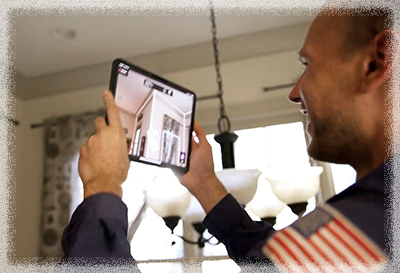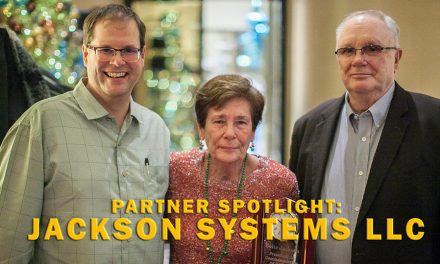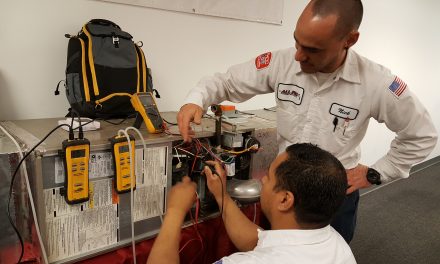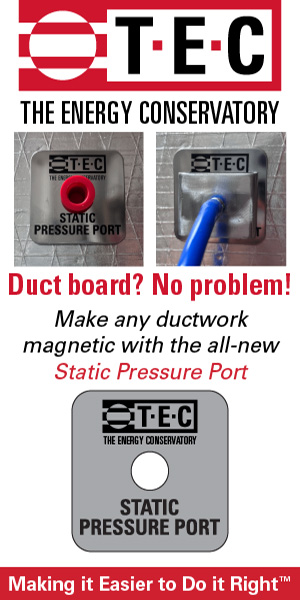“The more we learned, the more we realized that HVAC contractors had to manage customer education every step of the way – explaining key comfort challenges and their relationship to efficiency. Solving problems in these two key areas tends to be expensive. Most consumers never dreamed of how costly these problems could be.
“Add to that all the challenges contractors face regarding regulation and permitting that happens simultaneously.
Innovative Conduit Tech Tools for a Changing Industry
The breakthrough for Conduit came when the team developed a design and sales system to simplify the complexity of HVAC system design.
“We challenged ourselves to build a tool to help contractors design and sell while collaborating with their customers,” Shelby continues.
The solution was a comprehensive platform incorporating LiDAR technology to streamline the data collection process during home
assessments.

“We discovered that high-performance contractors faced challenges in their sales process by taking the time to do a thorough design. With LiDAR, contractors can now scan a space, generate a 3D model, and create a detailed floor plan in a fraction of the time previously required, reducing design time from two hours to about 15 minutes.”
From Prototypes to Industry Adoption
Developing a functional product was not without its challenges.
“We built a lot of prototypes for different solutions, and many were not very good,” Breger admitted. “Feedback from early testers was always too kind, but noncommittal until we unveiled the current version of the Conduit software.
She says that in 2022, Conduit came up with a foundational version of the software they have today. The thought was to create a design and sales system that helps contractors sell collaboratively with their customers.
“When we showed our core group of HVAC contractor testers this version, the response changed completely — they were ready to sign up immediately.”
This process was the launch pad for Conduit and, in Breger’s opinion, helped to move it to the forefront as a high-performance design and sales tool. She says contractors are embracing it for its ability to balance precision with speed and simplicity, which are key principles the company continues to build upon.
A Unique Background: From Energy Efficiency to HVAC
Before founding Conduit, Shelby and Marisa were not part of the HVAC industry. Shelby’s background was in industrial energy efficiency, while Marisa, who has an engineering degree, worked in agriculture efficiency. Both women say home performance was fascinating because of its direct impact on people’s lives.
“Our guiding question became, what can we do today that helps small HVAC business owners and consumers in a meaningful way?”
Their collaboration began in Boston, where they connected through a shared alum network and a mutual interest in residential energy efficiency.
Click Below for the Next Page:













Recent Comments